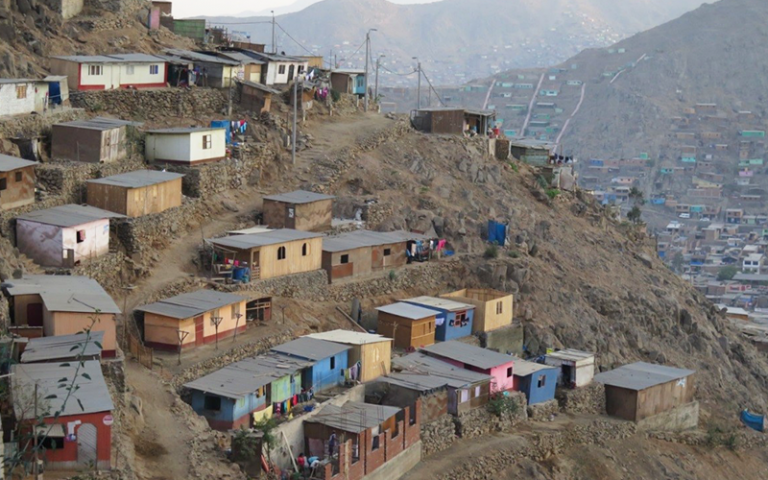DPU research projects selected amongst UCL's REF 2021 impact case studies
16 June 2022
Congratulations to DPU's Michael Walls, Adriana Allen, Emmanuel Osuteye, Cassidy Johnson and Rita Lambert whose research projects were amongst the twelve REF 2021 impact case studies submitted by The Bartlett that were deemed to be 'internationally excellent' and 'world leading'.

The Research Excellence Framework 2021 (REF) is held every seven years and is used as a benchmark to gauge the relative strength of a research unit. The results are used in marketing and communications to show the strength of our research environment and therefore contribute to staff and student recruitment.
The excellence of research at UCL and its positive real-world impact has improved since 2014, according to the REF 2021 assessment results. UCL is second in the UK for research power by a measure of average research score multiplied by staff numbers submitted. Additionally, the Bartlett is where the UK’s most ‘World Leading’ and ‘Internationally Excellent’ built environment research is undertaken, with 91% of research being deemed ‘World Leading’ and ‘Internationally Excellent’. The Bartlett is also number one for Research Power in the built environment
A total of 3,432 UCL academics submitted to this REF process, of which twelve from the Bartlett and two DPU projects were selected as impact case studies, demonstrating research is transforming lives. The two DPU projects selected are detailed below.
Cities beyond risk: Disrupting risk accumulation through enhanced local capacities across the Global South
Research team: Adriana Allen, Cassidy Johnson, Emmanuel Osuteye and Rita Lambert
Most of the world’s future urban growth is set to occur in the Global South, where capacity to plan and manage equitable and climate resilient development is limited. These pressures can create ‘risk traps’. Risk traps occur when daily health hazards like poor access to water, sanitation or food meet with episodic threats such as flood or fires, in environments where capacity to manage these risks is limited.
Through two projects (ReMapLima and cLIMA sin Riesgo) Professor Adriana Allen and Dr Rita Lambert from the UCL DPU investigated risk trap causes and management in Lima (Peru). A further project in Freetown (Sierra Leone) and Karonga (Malawi) saw Professor Allen collaborate with Dr Cassidy Johnson and Dr Emmanuel Osuteye (also from the DPU), to examine how ‘risk traps’ work and can be disrupted across urban Africa. This was part of an ambitious research programme led by Professor Mark Pelling at King’s College London.
Read more
Co-producing research and policy in Somaliland and Sierra Leone to address urgent development challenges
Research team: Michael Walls
Collaborative research with the Bartlett into political institutions has forged partnerships with authorities in Somaliland and Sierra Leone to co-produce fairer approaches to policymaking and governance. This has helped authorities to create locally-relevant policies to improve equality and reduce climate risk and conflict.
Professor Michael Walls’ extensive research into Somaliland politics has led to improved recognition of gender politics and election processes in this stable but internationally unrecognised state, and Bartlett action-research through Sierra Leone Urban Research Centre (SLURC) has led to new training for key urban stakeholders, changing how policymakers in the nation’s capital incorporate informal settlements into their urban planning processes.
Strengthening women’s leadership
In 2017, that research resulted in an invitation from the UK’s Department for International Development (DFID) to collaborate with Social Development Direct (SDD), a leading provider of expert social development assistance and research services, to explore the potential for women’s leadership across the wider Somali Horn of Africa. The collaboration deepened SDD’s portfolio of evidence on women’s political empowerment (WPE) in fragile and conflict-affected settings. Those research and policy advisory roles also contributed to Walls’ role over successive elections as Chief Observer of International Election Observation Missions, (IEOMs), examining electoral processes in Somaliland.
Empowering informal settlements
The Sierra Leone Urban Research Centre (SLURC) was established in 2015 as a collaboration between UCL and Njala University, with DPU staff including Dr Andrea Rigon, Dr Alex Frediani and Professor Walls playing key roles in that process from the start. The centre is based in Freetown, the capital of Sierra Leone, and aims to generate capacity building and action research, with a particular focus on the country’s many informal settlements.
This has helped informal settlements become recognised in the National Land Policy of the country’s New National Development Plan and the Mayor’s Freetown Transformation Plan (2018–2022) and has raised the voices of local organisations.
With substantial input from Professor Adriana Allen and Dr Rita Lambert (DPU) working with other local and international partners, SLURC’s partnership with the Centre of Dialogue of Human Settlement and Poverty Alleviation (CODOHSAPA), helped CODOHSAPA to engage in community-led research.
Read more
 Close
Close

